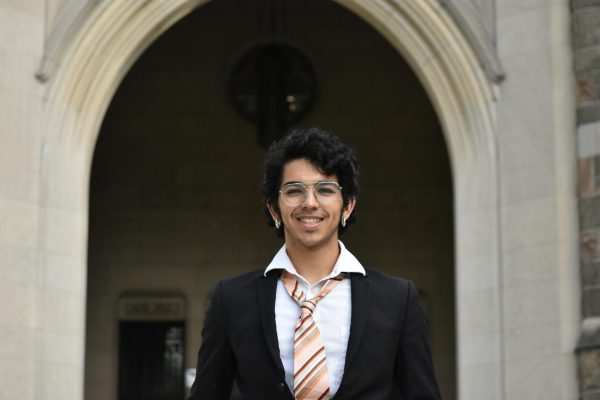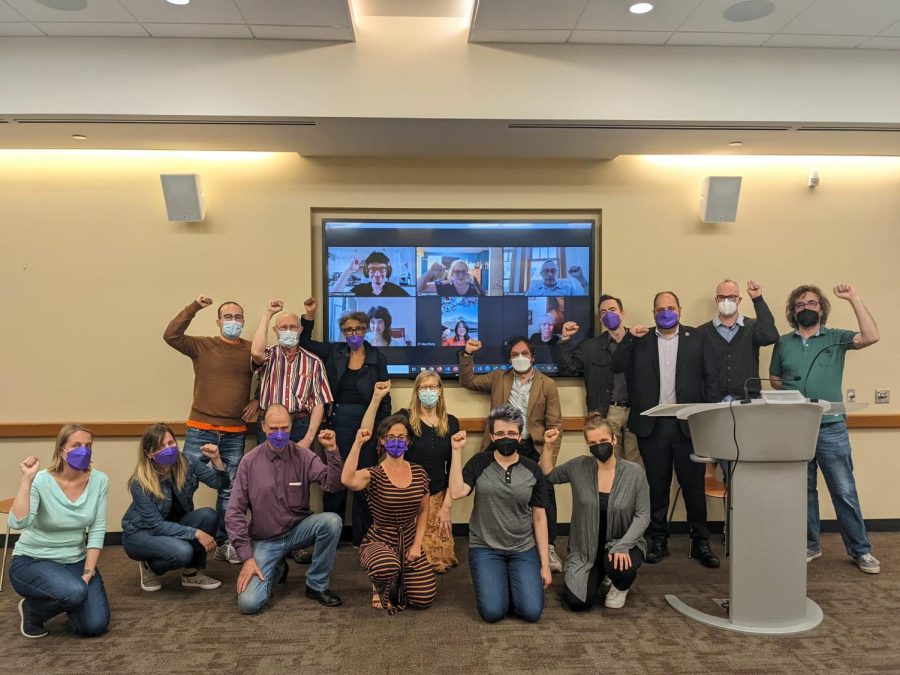Fordham Faculty Union in Union Renewal Process
Starting since March 2022, the Fordham Faculty United (FFU) has been in union contract renewal negotiations with Fordham University administrators to improve benefits for university faculty. Throughout these negotiations, the union has prioritized three areas of improvement: higher compensation, provision of health benefits for adjunct faculty and reaching a pay parity across all of the schools at the university.
As FFU’s “Open Letter to the Community” reads, “We, members and supporters of the Fordham community, call on the Fordham administration to live up to its values of human dignity for all persons in the ongoing collective bargaining negotiations with Fordham Faculty United by addressing three priorities…”
The first of these priorities is that of higher compensation of pay to who the letter describes as “the most vulnerable faculty in the Fordham community,” pushing for wage increases that would help faculty provide stronger environments for students.
The second priority demands employer-based health benefits for part-time faculty, as these benefits are “a necessity in the United States, where most workers depend on employer-sponsored insurance for health coverage,” according to the letter.
The third and final priority is one stipulating pay parity for the adjunct faculty members in the schools of social work and religious education who currently earn lower wages than their peers in Fordham’s other schools.
“Paying less to those in the care professions perpetuates systemic gender and racial inequalities,” reads the letter, as, “at Fordham, as elsewhere, women predominate in the social work and education fields.”
The Fordham Ram spoke with FFU chair Josh Jordan, Ph.D., senior lecturer in French, to discuss the union negotiations and understand why these platforms are crucial.
First, Jordan explained the important role that adjunct professors play in helping carry the educational substance of
Fordham University, discussing the connection between adjuncts and the university’s core curriculum.
“You’ve taken core classes, there is a 100% chance that you have been taught by an adjunct,” said Jordan.
A significant portion of core classes that undergraduate students take throughout their studies are taught by part-time, adjunct faculty that do not receive the same benefits as full-time and tenured faculty. This is an especially important talking point for FFU, as the union, as Jordan argues that, because adjunct faculty plays such an important role in building the educational foundation of the university, they deserve higher wages, health benefits and equal pay across the board.
So far, the negotiations between FFU and the university have not proved as fruitful as the union would like. The union proposed a pay-raise plan covering the three years in which the collective bargaining agreement would be in effect, from 2022 to 2025. According to the union’s plan, covered faculty in Fordham’s schools of arts and sciences, the Graduate School of Religion and Religious Education and Masters and Ph.D. students in the Graduate School of Social Services would have a pay increase of $500 each year for a total increase of $1500 by the end of the three years.
The university proposed a counterplan that saw a pay increase of 3% every year.
In response, Jordan said:
“You don’t need to be The Economist to recognize that 3% of a big number gives you a bigger number than 3% of a smaller number. So 3% gets adjuncts, someone who’s just been hired or been around for three years, $210 extra per course. Rate of inflation is currently 8% and cost of living, especially in New York City, has been soaring. $210 has been spent already. It’s been spent on food. It’s been spent on rent.”
“This isn’t very much at all,” Jordan said. “It’s not being, as you know, compensated by some kind of health benefit where you might go, ‘well, we don’t have this but at least we’re gaining this.’”
To put the university’s proposed raise plan into perspective, Jordan compared said plan to the approved raise plan in effect at Barnard College. Whereas new adjuncts would receive a $210 increase per course to their salary after their first year of teaching, adjuncts of the same kind would receive a $1,500 salary increase after the same amount of time for the same kind of work.
“Even if you accept that, yes, Fordham is not Barnard, aren’t Fordham faculty worth one-third (the difference between $500 and $1500) of Barnard? They’ve answered that question with the $210,” said Jordan.
For further detail, Fordham’s plan would mean that, after three years, new adjuncts in the arts and science would be earling $7,649 per course and more experienced adjuncts, who have been working for over six years, would be earning $8,741 after the contract’s three years.
Where health benefits might be a useful boost to the lower proposed pay raises, the university is not offering nor planning to offer health benefits of any kind to adjuncts.
“At the end of the day,” Jordan said, “the university is not interested in providing a meaningful health benefit … and this is coming on the heels of COVID-19. If it taught us anything, it taught us that things can go south very quickly and not just for individual faculty members, but for family members, children, etc. While we all subscribe to believe in Fordham’s motto, “cura personalis,” care for the whole person. We believe in that even more because, for us, providing meaningful health benefits to the adjuncts, already some of the most vulnerable employees … means care for the community. It means taking care of those who ensure a Fordham education.”
Other plans to compensate for the lower proposal have also been rejected.
Jordan explained that the union asked for an adjustment on the adjunct faculty structure, suggesting that the university allow for adjuncts to teach more than two courses per semester. The university shut down this proposal.
The Ram reached out to the two Fordham University representatives during the negotiations, Beth Fagin, Fordham’s deputy general counsel, and Dr. Ji Seon Lee, the associate provost, for a comment. The representatives referred to Bob
Howe to provide comment, who said:
“The university has offered a 3% wage increase for each year of the contract to all SEIU members which is inline with the wage increases Fordham agreed to with other employee groups during the same period. The proposed increase follows the approximately 40% increase Fordham provided to most members in the first collective bargaining agreement entered into in 2018. Because the adjuncts in the Graduate School of Social Service and Graduate School of Religion did not fully realize the large increases gained in the 2018 contract, we have proposed a significant jump in their base salary which far exceeds 3%. In addition, the university has offered adjunct faculty a payment of up to $800 to assist them with the cost of health benefits since many receive subsidized health benefits on the NYS Health Exchange. The university’s proposal will provide most adjuncts with an increase in the first year of the contract of over $1800.”

Sebastian Diaz is a senior from Chapel Hill, N. C. who is double majoring in journalism and film. After starting as a news reporter for The Fordham Ram...










































































































































































































